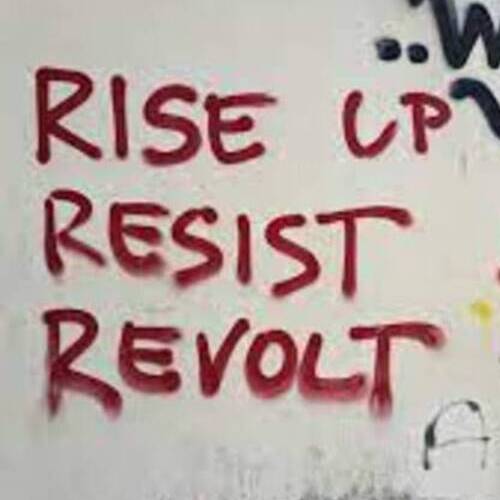In the past few weeks I had the opportunity to visit New England. We saw Plymouth Rock and took a tour of the reconstructed Mayflower 2. We also walked the Freedom Trail in Boston which traveled past many of historic sites of the Revolutionary War such as the Old North Church, Paul Revere’s House, Faneuil Hall and the site of the Boston Massacre. More than 250 years later, we recognize our founding fathers as generally godly men and patriots who fought for a cause that was ordained by God. In recent days, some have compared the colonists struggle against oppression from the king in the same terms as the oppression we face from our government today. This has brought on some questions, such as: When is the right time for another revolution? When do we say “enough is enough”? Could God be on our side in a new fight for freedom?
To answer these questions, let’s take a look at what the founding fathers believed, what the Bible says, and whether our circumstances align with what they were facing with England. There is no doubt that the colonists believed that the revolution was justified. All throughout the Declaration of Independence they allude to this, noting that they were “appealing to the Supreme Judge of the world for the rectitude of our intentions” and that their declaration was made “with a firm reliance on the protection of divine Providence”. Obviously, God’s providence was with them and has preserved us a nation until this day. But there are also some biblical precedents and principles that must be taken into account.
- God Does Not Ordain Anarchy – Romans 13:1 tells us that “There is no power but of God: the powers that be are ordained of God.” The colonists were not anti-government anarchists. The freedom they sought was not freedom from a God-ordained government in authority over them. Being anti-government is anti-biblical as it is established and ordained by God. Romans 13 confirms this. The colonists were against tyranny from their government. Mayhew said in 1750, “Rebellion to tyrants is obedience to God.”
- God’s Will is Higher Than Man’s Law – When confronted with a direct command to not teach and preach the gospel, “Peter and the other apostles answered and said, We ought to obey God rather than men” (Acts 5:29). The colonists understood this as well. We must obey authorities unless that obedience requires us to disobey what God wants us to do. There is a law higher than that of the king or government that he represents. This is what was appealed to as justification for the declaration all throughout the Declaration of Independence. Their unalienable rights, given to them by God, were in danger of being taken away. As a result, they proclaimed that “when a long train of abuses and usurpations… evinces a design to reduce them… it is their right, it is their duty, to throw off such Government, and to provide new Guards for their future security.” They also looked to the heroes of faith in Hebrews 11 such as Gideon, Barak, Samson, and Jephthah of examples of those who rose up and overthrew oppressive governments.
- God Did not Tell Them to Revolt – As much as we paint the picture today that these patriots led a revolt against England, many of that day did not see their role as taking the offense. To them, the war was considered a necessary defensive action to preserve their God-given rights. They had presented the king with formal appeals for reconciliation and these were returned with military force and several violations of British Common Law and the English Bill of Rights. In 1770, the British fired upon unarmed citizens in the Boston Massacre. At Lexington, the command given to the colonists was “Don’t fire unless fired upon.” As a result of these aggressive abuses against them, the colonists saw their stance as one of defense for their homes and families. They did not generally believe that God was telling them to rise up and revolt.
Of course, there were good Christians on both sides of the debate. Some preachers like Wesley admonished the people to submit to their authorities and not to fight in the revolution. Others used Scripture to support the bloodshed that took place. They lived in a day and age where many cared that God was on their side. Today, that is not the case. When people talk of rising up and initiating a revolution it is often motivated by their own self-interests, partisan disagreements, or a desire for anarchy. These are never biblical reasons to put up a fight. There may be a time when we must rise up again to overthrow tyranny, but before that day comes we must get back to the Bible. As the last verse of the Star-Spangled banner reminds us: “Then conquer we must, when our cause it is just, and this be our motto – ‘In God is our trust’”
References:
https://www.gotquestions.org/American-Revolution-Romans-13.html

